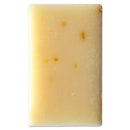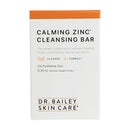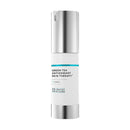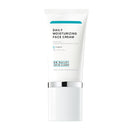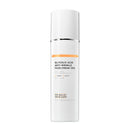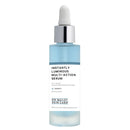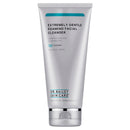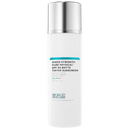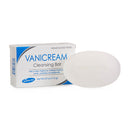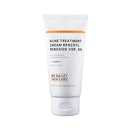Do you itch more when you are upset?

Are you itchy when you are angry? Over the years, I’ve observed that when a person is under emotional stress, they often suffer more from their existing physical ailments including their skin problems. The ailments themselves are not necessarily worse, but the symptoms and suffering can be.
What You Need to Know About itching when you're Upset
As a dermatologist, I notice that patients tend to itch more from skin problems when their lives are in a difficult emotional place. There will be more signs of scratching, their itchy skin keeps them up more at night; I can see their anxiety building, causing more suffering overall.
Stress and anger can make itching worse.
We have known about the “itch scratch cycle” for many years; itching causes scratching, which causes anxiety and changes in the skin, then there’s more itching, scratching, and anxiety and it just keeps winding up.
We have been able to observe it and name it, but we haven’t been entirely clear on the “chicken and an egg” aspect of the cycle; meaning, is it always that the itching causes the anxiety, or could the anxiety be fueling the itching?
A study in the British Journal of Dermatology suggests that a negative emotional state alone can make your itch worse.
The authors have shown that your emotional state can influence your perception of itch. They had study subjects,
- watch movie clips to induce a “negative” or “positive” emotional state in a group of healthy women (they watched Happy Feet for a “positive” emotional state and a violent scene from Irreversible to create a “negative” emotional state),
- at the same time, they used laboratory methods to induce itch and pain on the subjects' skin.
They demonstrated that subjects watching the violent film reported much higher scores for both pain and itch compared with those watching the positive film. We already have scientific evidence that pain perception is impacted by emotional state but this is the first scientific evidence connecting itch and emotional state.
For me as a physician and dermatologist, it means that helping my patients improve their emotional well-being is an important part of treating their chronic itch.

Because I’ve observed this connection between itch or pain (e.g. shingles) and emotional well-being/anxiety for years, I’ve routinely included lifestyle counseling in my treatment of skin problem that cause these symptoms.
I like to think of emotional well-being as a “volume control” for pain and itch “signals” that are being sent in by the nerves - improving emotional well-being turns the "signal" volume down!
What are some of the lifestyle changes I’ve found helpful for my patients with chronic itch or pain?
If you are suffering from chronic itch or pain, aim for activities that help you de-stress, and say “no” more often to activities that have a “negative” impact on you emotionally. You have to figure out what this personally means to you, but in general,
Activities that help to de-stress and to promote a sense of “well-being” include:
-
Spending time with friends and people who are easy to be with.
- Exercising daily.
- Spending quiet time in nature.
- Getting a good night’s sleep every night.
- Taking the time to eat healthy meals.
- Meditating, practicing yoga, going to church, or whatever it is that helps to connect you to something deeply comforting.
- In really difficult cases, I would recommend biofeedback (a form of therapy to help control the physiological experience of stress such as heart rate, blood pressure, and breath) and acupuncture.
- For my patients with really complex emotional issues I recommend counseling to help ease their burden.
Stressful activities to avoid because they may create “negative” emotions and increase itchy skin include:
- Spending time with people who are difficult to be with.
- Pushing yourself to get too much done.
- Reading, watching, or listening to violent or emotionally upsetting media.
- Spending too much time in stressful and nerve-jangling places.
- Constantly putting yourself at the bottom of your list of priorities for the day.
It is also really important to use gentle hydrating skin care to soothe itchy skin.
Take time every day for a hydrating bath or shower followed by application of a really good skin moisturizer. We know that well-hydrated skin sends fewer itch “signals.”
- Bathe or shower in warm, not steamy-hot, water daily. Water helps to hydrate your skin from the outside when you trap moisture with a good skin cream after toweling dry.
-
 Use gentle soap applied only to soiled, oily or body odor areas of skin such as face, neck, chest, upper back, armpits, groin, buttocks and feet. Soap and cleansers can dry skin and there is no need to soap up other areas of skin on a daily basis. My fragrance-free Naturally Best Bar Soap is an ideal and simple option.
Use gentle soap applied only to soiled, oily or body odor areas of skin such as face, neck, chest, upper back, armpits, groin, buttocks and feet. Soap and cleansers can dry skin and there is no need to soap up other areas of skin on a daily basis. My fragrance-free Naturally Best Bar Soap is an ideal and simple option. - Consider exfoliating with a shower cloth with your soap to remove flakey skin that stimulates itch. I use the practical and economical Salux Shower Cloth in my practice and for my own skin care.

- Apply a deeply hydrating moisturizing skin cream to all itchy areas within the 'magic 3-minutes' after patting skin dry with a towel. My Natural Body and Face Butter Cream is fragrance-free and made with hypoallergenic and healing botanical oils perfect for sensitive and itchy skin.

This simple 4 step skin self-care works miracles to sooth itchy skin.
How can you relieve itch fast when it starts?
If itch breaks-through, don't scratch. Instead, apply something cool like an ice pack, a spritz of cool water or some other skin-cooling sensation to get your skin nerves to tell you about the cold sensation because this overrides the itch message they are sending.
These skin care and lifestyle recommendations give you an inner and outer approach to itchy skin. They boost your sense of well-being and help skin heal and resist itch.
The bottom line for itchy skin and stress:
If you suffer from a skin problem with chronic itch or pain, de-stressing now also becomes an important part of your treatment.
Reference:
van Laarhoven AIM et al. Role of induced negative and positive emotions in sensitivity to itch and pain in women. Br J Dermatol 2012 Aug;167:262.
Photo: Thanks and Gratitude to Nick Mitha

